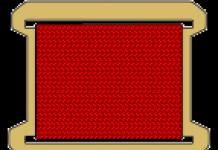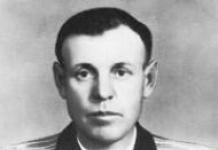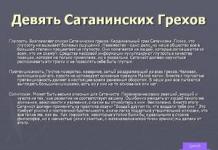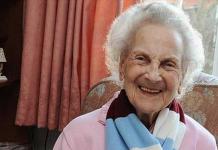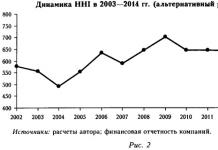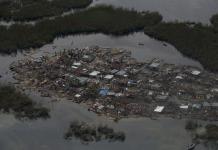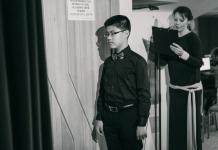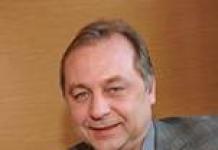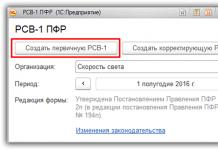on the 1030th anniversary of the Baptism of Rus' to Moscow and spent more than one day in Russia. He spoke about the purposes of his visit, the view of one of the oldest and largest Local Orthodox Churches in the world on the situation of believers in Ukraine and political pressure on the issue of autocephaly, the persecution of Christians in Africa and the refugee problem in an exclusive interview with RIA Novosti.
— Your Beatitude, what is the main purpose of your visit, why did you decide to participate in the celebration of the 1030th anniversary of the Baptism of Rus'?
“I came because I love Russia very much and from a young age I wanted to feel what Russian life is, what it means to belong to the Russian Church. More than thirty years ago I came to serve in Odessa as the exarch of the Patriarch of Alexandria in Russia, and since then my love has only grown stronger. And although these days I was supposed to be on an Orthodox mission in Africa, I put it off and came here. When one Church rejoices, the other Church should rejoice.
— What do you think about the situation of the canonical Church in Ukraine and the issue of autocephaly being discussed there today?
— The Church must be governed according to sacred canons. Politicians have their own considerations, instructions, orders, but politicians come and go, but the Church has existed unshakably for two thousand years. In this sense, I agree with the opinion of the Russian Church that one cannot succumb to political pressure. When states and then the Church are divided, this is wrong.
— What countries and peoples are united by the Alexandrian Orthodox Church today, and how many believers are there in it?
— I have 54 countries under my jurisdiction, two thousand schools, three thousand hospitals and, I think, more than 15 million Orthodox Christians. We would like to have more missionaries because there are more and more believers.
— How is the Orthodox mission in Africa going, and how are relations built with representatives of other faiths?
— We have very good relations with both Catholics and Protestants; The complexities and realities of life force us to overcome misunderstandings. We often face poverty, death, illness and, naturally, we help each other, because the conditions are very difficult. We do not have the luxury of having long conversations about dogmatic differences while looking into the eyes of thousands of children who are holding out their hands and asking for food.
—Where is the threat to the lives of Christians today?
— Mainly in South Sudan, Libya, Kenya and North Africa. We are very concerned about the situation in the Middle East. At the epicenter is Egypt (where the city of Alexandria with the see of the Alexandrian Orthodox Church is located - approx. ed.). But, thank God, the current President Abdul-Fattah Al-Sisi is making active efforts to completely destroy and dismantle the terrorist forces and encourage people belonging to different religious and national groups to live peacefully.
— What is most important in relations with Muslims?
“It is very important to distinguish between extremist Islam and Islam, professing which, people live peacefully, read the Koran and pray - we see this like no one else.
— What other problems of the Christian world are relevant to you?
— At the beginning of the month, the Primates and representatives of the Eastern Churches in Bari (among the participants in the meeting organized on the initiative was the Chairman of the Moscow Patriarchate. — editor’s note). And everyone talked about the difficulties they had to face. I talked about the refugee problem because North Africa is the door through which people pass when crossing the Mediterranean to get to Europe. Refugees are a huge problem that Europe still has not understood and has not yet solved.
— What do you think about modern Russia and its spiritual life?
— I was very happy in Moscow after visiting the monument to Prince Vladimir to be next to President Putin, who asked me with interest about the situation in Egypt, about the President of the country, whom he invited to come to Russia. And he expressed his heartfelt condolences in connection with the terrible events that claimed the lives of people in Greece the other day. We all root for each other.
I am heartily grateful to Patriarch Kirill, who with great love helps me perform my ministry. The Russian Church is a strong Church. We are the historical Church. I am glad that we have been walking together for so many years, side by side.
I am also happy to see the development of Russia: with every visit, cities and villages become more beautiful. The Russian people are a heroic people. I want to encourage people to remain faithful to Orthodoxy, to have hope, love and optimism. Christ is the peace of the world.
Interviewed by Natalia Fedotova
DECR Communication Service / Patriarchy.ru
Related materials
Commentary of the Representation of the Ukrainian Orthodox Church at European international organizations [Documents]
At a meeting of the Academic Council of Kyiv Theological Schools, chaired by His Beatitude Metropolitan Onuphry, the results of the academic year were summed up
A representative of the Church of Cyprus visited persecuted communities in the western dioceses of the Ukrainian Orthodox Church
The Hierarch of the Serbian Orthodox Church visited the Department for External Church Relations
The Moscow Synodal Choir is on a tour of European cities.
The delegation of the Cypriot Orthodox Church visited the St. Petersburg Theological Academy
The fifth meeting of the Commission on International Cooperation of the Council for Interaction with Religious Associations under the President of the Russian Federation took place
Celebrations dedicated to the 1025th anniversary of the Baptism of Rus' have ended in Russia, Ukraine and Belarus. Eight patriarchs came to the Russian Orthodox Church to celebrate an important date. Among the distinguished guests was the head of one of the oldest churches in the world - Patriarch of Alexandria and All Africa Theodore II. He shared his impressions in an exclusive interview with “Voice of Russia”
His Beatitude is the Pope and Patriarch of the Great City of Alexandria, Libya, Pentapolis, Ethiopia, all of Egypt and all of Africa - father of fathers, shepherd of shepherds, HIGH PRIEST of bishops, Thirteenth Apostle and Judge of the Universe... Patriarch Theodore II has many titles. Due to the more than busy schedule of celebrations, it was possible to interview the head of the Alexandria Church only on the train in which he, along with other patriarchs and representatives of world Orthodoxy, traveled through the historical territory of Holy Rus': from Moscow to Kyiv, and then to Minsk. “I am very impressed and touched by this journey,” he began his story. Theodore II:
“At one time, I attended the celebration of the millennium of the Baptism of Rus',” he continued. – It was in 1988. I then served in Odessa, was an archimandrite at the metochion of the Alexandria Orthodox Church under the Moscow Patriarch. Then our patriarch Parthenius could not come, and I represented him. I remember Patriarch Pimen back then. He was already in a stroller then. The liturgy was conducted by the late Antioch Patriarch Ignatius.
I remember well that the day was very cloudy and the whole sky was overcast. And I got the feeling that the weather seemed to remind me of the suffering that the Russian people went through to come to this bright day of the millennium of Epiphany. And when we then went to Kyiv, one of the heaviest rains I have ever seen broke out. And God favored that 25 years later I would come to celebrate the 1025th anniversary as the patriarch of the Alexandria Church.
I thank God and Patriarch Kirill, my dear brother, for such favor. And I really hope that we will all also celebrate the 1050th anniversary of the Baptism of Rus'.”
Every now and then Patriarch Theodore switches to Russian out of habit. For him, he is, if not family, then beloved. The First Hierarch of the Church of Alexandria can talk about Russia and the Russian people for hours. No wonder.
In the 1980s, for many years he was the exarch of the Alexandrian Patriarchate in the Russian Orthodox Church with a metochion in Odessa. During the years of the USSR, no one divided each other into Russians and Ukrainians. For us it was all Russia. And I gave my heart to her, laughs the Alexandrian First Hierarch:
“Even when I was studying theology at the University of Thessaloniki, I read a book about the Russian saint Seraphim of Sarov. And for seven years in a row, every evening I prayed to Saint Seraphim that I would have the opportunity to get to know the Russian land. And since then I have always said that my heart now and forever belongs to Russia. God finally heard me, and I lived for 10 whole years in Odessa. At that time I was learning Russian, I could not even think that today the whole world would speak Russian, that it would become a language of global importance.
I thank Russia and the Russian people very much for the fact that it was here that I learned a lot and learned a lot from what helps me today in my patriarchal service.”
For 9 years now, Theodore II has been heading the department of the Alexandrian Church, one of the oldest in the world. And before that, for several years he headed Orthodox missions in Cameroon, Zimbabwe, Mozambique, Botswana and Angola. A missionary, connoisseur of art and guardian of Orthodox traditions and Eastern spirituality, today Patriarch Theodore II has great hopes for Russia and the Russian Orthodox Church:
“I am glad that among the number of ancient patriarchates, ours is perhaps the only one with which Russia has always had very close and friendly relations. I am grateful to Patriarch Kirill, who gave his blessing to send several children from Africa to Russia so that they could study here and learn the Russian language. I am always pleased when in African countries, when meeting with either presidents or prime ministers, I can communicate with them in Russian. Because many of them were educated in Russia.”
The current trip of Theodore II to the Russian Orthodox Church to celebrate the 1025th anniversary of the Baptism of Rus' came at a difficult time for both the African continent and the Middle East region. The strengthening of radical Islam is forcing Orthodox Christians to leave the territories where Christianity was once born:
“In Egypt, we, representatives of the Alexandrian Patriarchate, are the smallest community in the country. The largest force in Egypt is the Coptic Church, with about 15 million followers. Now my heart is especially sad because a few days ago, unrest began again in Egypt. Fanatical conservative Muslims who adhere to a strict Islamic regime clash with those who, say, advocate a modern way of life. From frequent communication with people, I realized that the Muslim Brotherhood has neither the opportunity nor the desire to do something good for its own people. After all, they do not act for the common good, but pursue their own interests.
At the same time, of course, it should be noted that no one in the patriarchate or me personally has ever touched anyone. We are treated with respect. Everyone knows us, they say “Greeks” about us, and we don’t feel any aggression from Muslims. In the evenings I often go out for a walk through the streets of the city, just in a cassock and only with a rosary in my hands. And ordinary Muslims often invite me to visit them.”
According to the head of the Alexandria Church, immediately after returning to Egypt he intends to meet with the sheikh of the country's Muslims and the head of the Coptic Church. Theodore II is confident that spiritual leaders will be able to work together to figure out how to prevent bloodshed in the country.
Date of Birth:
Date of tonsure:
A country:
Egypt and all of Africa
Biography:
Born in Kanli, Kasteli Chania province in 1954. As a child, he lived with his family in Tilis, Agies Paraskies, and Heraklion on the island of Crete. After high school, he studied at the Risarian Church School in Athens and received a master's degree after graduating from the Faculty of Theology at the Aristotle University of Thessaloniki. He also studied art history, literature and philosophy in Odessa.
In 1973, he took monastic vows at the Ankarat Monastery. He continued his studies at the Aristotle University of Thessaloniki at the Faculty of Theology.
In 1975, he was ordained deacon at the monastery of Spili, and served as protosingel (secretary) of the Lambian and Sfakian Metropolis in Crete. He actively participated in preaching and philanthropic activities.
From 1985 to 1990 he was in Odessa as exarch of the Patriarch of Alexandria in Russia, where his flock were the Greeks of the former Soviet Union.
He founded the School of Greek Culture and the Filiki Etherea Museum for 600 children, where the Greek language is taught. In 1990 he was ordained bishop with the title of Cyrinx and was appointed Patriarchal Representative of the Patriarchate of Alexandria in Athens.
In 1996 he was appointed Patriarchal Vicar in Alexandria.
In September 1997, Metropolitan Theodore was elected Metropolitan of Cameroon and Central Africa. In subsequent years, he became known as a pastor who made an enormous contribution to the apostolic ministry of the peoples of Cameroon, Chad, Guinea, Ecuador, Gabon and the islands of St. Thomas, as an administrator who took over a huge metropolitanate that extends to central and western Africa.
In 2002, he was elected Metropolitan of Zimbabwe, and the works of the apostolic ministry from central-western Africa are transferred south to the lands of Zimbabwe, Angola, Mozambique, Botswana, and Malawi. He founded 4 missionary centers in Harare, a Greek cultural center for 400 delegates, 2 large missionary centers in Malawi, a hospital, a technical school and a nursing school. They founded temples in Botswana and Angola.
On October 9, 2004, he was elected as the 116th Patriarch of Alexandria and All Africa. The enthronement ceremony took place at the Cathedral of the Annunciation of the Blessed Virgin Mary in Alexandria on October 24, 2004.
Title of Primate: His Beatitude, Most Divine and Holy Father and Chief Shepherd, Pope and Patriarch of the great city of Alexandria, Libya, Pentapolis, Ethiopia, all Egypt and all Africa, Father of fathers, Shepherd of shepherds, Bishop of bishops, Thirteenth Apostle, Judge of the universe.
The patriarchal residence is located in Alexandria (Egypt).
Odessa State University named after I. I. Mechnikov
at birth:
village of Kasteli, Chania region, Crete, Greece
In 1973, he took monastic vows at the Agarath Monastery of the Dormition of the Blessed Virgin Mary in Heraklion.
In 1975, Metropolitan Theodore (Dzedakis) of Lambis and Sfakia ordained him to the rank of deacon, after which he served as archdeacon of the Lambis Metropolis in Crete.
On April 23, 1978, the same bishop ordained him to the rank of hieromonk, after which he was protosyncello of the same metropolis. He was involved in charity work.
On June 7, 1990, he was consecrated Bishop of Cyrene and appointed Exarch of the Alexandrian Orthodox Church in Athens, accompanied Parthenius III on missionary trips to Africa and on foreign visits.
Established four missionary centers in Harare, a Greek cultural center for 400 people, two large missionary centers in neighboring Malawi with hospitals, technical schools and nursing courses. With funds from the Greek Parliament, he renovated the Greek quarter (School, Church, Priest's House) in Beir, Mozambique. He founded churches and contributed to the creation of Orthodox communities in Botswana and Angola.
Theodore II, the only one of the primates of other churches in the patriarchal rank, participated in the enthronement of Moscow Patriarch Kirill in the Cathedral of Christ the Savior, February 1, 2009.
Awards

Write a review of the article "Theodore II (Patriarch of Alexandria)"
Notes
Links
- on the website of the Moscow Patriarchate.
- on the website of the Patriarchate of Alexandria
- , July 1, 2008
|
||||||||||||||||
Excerpt characterizing Theodore II (Patriarch of Alexandria)
From the flush they drove even further to the left along a road winding through a dense, low birch forest. In the middle of itforest, a brown hare with white legs jumped out onto the road in front of them and, frightened by the clatter of a large number of horses, he was so confused that he jumped along the road in front of them for a long time, arousing everyone’s attention and laughter, and only when several voices shouted at him, he rushed to the side and disappeared into the thicket. After driving about two miles through the forest, they came to a clearing where the troops of Tuchkov’s corps, which was supposed to protect the left flank, were stationed.
Here, on the extreme left flank, Bennigsen spoke a lot and passionately and made, as it seemed to Pierre, an important military order. There was a hill in front of Tuchkov’s troops. This hill was not occupied by troops. Bennigsen loudly criticized this mistake, saying that it was crazy to leave the height commanding the area unoccupied and place troops under it. Some generals expressed the same opinion. One in particular spoke with military fervor about the fact that they were put here for slaughter. Bennigsen ordered in his name to move the troops to the heights.
This order on the left flank made Pierre even more doubtful of his ability to understand military affairs. Listening to Bennigsen and the generals condemning the position of the troops under the mountain, Pierre fully understood them and shared their opinion; but precisely because of this, he could not understand how the one who placed them here under the mountain could make such an obvious and gross mistake.
Pierre did not know that these troops were not placed to defend the position, as Bennigsen thought, but were placed in a hidden place for an ambush, that is, in order to be unnoticed and suddenly attack the advancing enemy. Bennigsen did not know this and moved the troops forward for special reasons without telling the commander-in-chief about it.
On this clear August evening on the 25th, Prince Andrei lay leaning on his arm in a broken barn in the village of Knyazkova, on the edge of his regiment’s location. Through the hole in the broken wall, he looked at a strip of thirty-year-old birch trees with their lower branches cut off running along the fence, at an arable land with stacks of oats broken on it, and at bushes through which the smoke of fires—soldiers’ kitchens—could be seen.
No matter how cramped and no one needed and no matter how difficult his life now seemed to Prince Andrei, he, just like seven years ago at Austerlitz on the eve of the battle, felt agitated and irritated.
Orders for tomorrow's battle were given and received by him. There was nothing else he could do. But the simplest, clearest thoughts and therefore terrible thoughts did not leave him alone. He knew that tomorrow's battle was going to be the most terrible of all those in which he participated, and the possibility of death for the first time in his life, without any regard to everyday life, without consideration of how it would affect others, but only according to in relation to himself, to his soul, with vividness, almost with certainty, simply and horribly, it presented itself to him. And from the height of this idea, everything that had previously tormented and occupied him was suddenly illuminated by a cold white light, without shadows, without perspective, without distinction of outlines. His whole life seemed to him like a magic lantern, into which he looked for a long time through glass and under artificial lighting. Now he suddenly saw, without glass, in bright daylight, these poorly painted pictures. “Yes, yes, these are the false images that worried and delighted and tormented me,” he said to himself, turning over in his imagination the main pictures of his magic lantern of life, now looking at them in this cold white light of day - a clear thought of death. “Here they are, these crudely painted figures that seemed to be something beautiful and mysterious. Glory, public good, love for a woman, the fatherland itself - how great these pictures seemed to me, what deep meaning they seemed filled with! And all this is so simple, pale and rough in the cold white light of that morning, which I feel is rising for me. Three major sorrows of his life in particular occupied his attention. His love for a woman, the death of his father and the French invasion that captured half of Russia. “Love!.. This girl, who seemed to me full of mysterious powers. How I loved her! I made poetic plans about love, about happiness with it. Oh dear boy! – he said out loud angrily. - Of course! I believed in some kind of ideal love, which was supposed to remain faithful to me during the whole year of my absence! Like the tender dove of a fable, she was to wither away in separation from me. And all this is much simpler... All this is terribly simple, disgusting!
My father also built in Bald Mountains and thought that this was his place, his land, his air, his men; but Napoleon came and, not knowing about his existence, pushed him off the road like a piece of wood, and his Bald Mountains and his whole life fell apart. And Princess Marya says that this is a test sent from above. What is the purpose of the test when it no longer exists and will not exist? will never happen again! He's gone! So who is this test for? Fatherland, death of Moscow! And tomorrow he will kill me - and not even a Frenchman, but one of his own, as yesterday a soldier emptied a gun near my ear, and the French will come, take me by the legs and head and throw me into a hole so that I don’t stink under their noses, and new conditions will arise lives that will also be familiar to others, and I will not know about them, and I will not exist.”
He looked at the strip of birch trees with their motionless yellow, green and white bark, glistening in the sun. “To die, so that they would kill me tomorrow, so that I wouldn’t exist... so that all this would happen, but I wouldn’t exist.” He vividly imagined the absence of himself in this life. And these birches with their light and shadow, and these curly clouds, and this smoke from the fires - everything around was transformed for him and seemed something terrible and threatening. A chill ran down his spine. Quickly getting up, he left the barn and began to walk.
Voices were heard behind the barn.
- Who's there? – Prince Andrei called out.
The red-nosed captain Timokhin, the former company commander of Dolokhov, now, due to the decline of officers, a battalion commander, timidly entered the barn. He was followed by the adjutant and the regimental treasurer.
Prince Andrei hastily stood up, listened to what the officers had to convey to him, gave them some more orders and was about to let them go, when a familiar, whispering voice was heard from behind the barn.
- Que diable! [Damn it!] - said the voice of a man who bumped into something.
Prince Andrei, looking out of the barn, saw Pierre approaching him, who tripped on a lying pole and almost fell. It was generally unpleasant for Prince Andrei to see people from his world, especially Pierre, who reminded him of all those difficult moments that he experienced on his last visit to Moscow.
- That's how! - he said. - What destinies? I didn't wait.
While he was saying this, in his eyes and the expression of his whole face there was more than dryness - there was hostility, which Pierre immediately noticed. He approached the barn in the most animated state of mind, but when he saw the expression on Prince Andrei’s face, he felt constrained and awkward.
“I arrived... so... you know... I arrived... I’m interested,” said Pierre, who had already senselessly repeated this word “interesting” so many times that day. “I wanted to see the battle.”
- Yes, yes, what do the Masonic brothers say about the war? How to prevent it? - said Prince Andrei mockingly. - Well, what about Moscow? What are mine? Have you finally arrived in Moscow? – he asked seriously.
- We've arrived. Julie Drubetskaya told me. I went to see them and didn’t find them. They left for the Moscow region.
The officers wanted to take their leave, but Prince Andrei, as if not wanting to remain face to face with his friend, invited them to sit and drink tea. Benches and tea were served. The officers, not without surprise, looked at the thick, huge figure of Pierre and listened to his stories about Moscow and the disposition of our troops, which he managed to travel around. Prince Andrei was silent, and his face was so unpleasant that Pierre addressed himself more to the good-natured battalion commander Timokhin than to Bolkonsky.
- So, did you understand the entire disposition of the troops? - Prince Andrei interrupted him.
- Yes, that is, how? - said Pierre. “As a non-military person, I can’t say that I completely, but I still understood the general arrangement.”
“Eh bien, vous etes plus avance que qui cela soit, [Well, you know more than anyone else.],” said Prince Andrei.
- A! - Pierre said in bewilderment, looking through his glasses at Prince Andrei. - Well, what do you say about the appointment of Kutuzov? - he said.
“I was very happy about this appointment, that’s all I know,” said Prince Andrei.
- Well, tell me, what is your opinion about Barclay de Tolly? In Moscow, God knows what they said about him. How do you judge him?
“Ask them,” said Prince Andrei, pointing to the officers.
Pierre looked at him with a condescendingly questioning smile, with which everyone involuntarily turned to Timokhin.
“They saw the light, your Excellency, as your Serene Highness did,” Timokhin said, timidly and constantly looking back at his regimental commander.
- Why is this so? asked Pierre.
- Yes, at least about firewood or feed, I’ll report to you. After all, we were retreating from the Sventsyans, don’t you dare touch a twig, or some hay, or anything. After all, we are leaving, he gets it, isn’t it, your Excellency? - he turned to his prince, - don’t you dare. In our regiment, two officers were put on trial for such matters. Well, as His Serene Highness did, it just became so about this. We saw the light...
Theodore II, Bishop of Rostov
(According to some manuscripts - Feudal, Fedorzo, White Klobuchek, Feodorets-Kaluger) - Bishop of Rostov, Suzdal and Vladimir.
Theodore is called a false bishop, a rapist, a predator who stole the throne of the Rostov bishopric in 1169.
Theodore was considered a relative of the noble boyar Peter Borislavov and the nephew of Smolensk Bishop Manuel, in a word, he was “of a great family and had a lot of wealth.”
Theodore was tonsured at the Kiev-Pechersk Monastery, and then abbot of Suzdal.
Theodore's character was "evil, impudent, shameless, strong in body, formidable and terrible for everyone."
Back in 1162, Prince of Vladimir Andrei Bogolyubsky († 1174; commemorated on July 4/17 and June 23/July 6 in the Cathedral of Vladimir Saints), wanting to elevate his beloved city of Vladimir, asked the Patriarch of Constantinople to separate the city of Vladimir from the Rostov diocese and create a separate one from Kyiv metropolis. He proposed his favorite abbot Theodore as a candidate for the metropolitan see. But Patriarch Luke Chrysoverg did not agree to this, and advised the flattering and sneaky Theodore, who slandered the Rostov Bishop Nestor, to be removed from himself.
In 1168, a large Council was convened in Kyiv, consisting of 150 clergy, on the occasion of disputes about fasting on Wednesday and Friday. From Prince Andrei Bogolyubsky of Vladimir, Abbot Theodore was sent to the Council with a proposal to overthrow Metropolitan Constantine of Kyiv and elect a new one, but the proposal was not accepted. Then Abbot Theodore, with a supply of gold and silver, went to Constantinople to the patriarch with a report that there was supposedly no metropolitan in Kyiv, and asked to be installed as Metropolitan of Kyiv. The Patriarch did not agree. But this did not bother Abbot Theodore. He brought rich gifts to the patriarch and asked to be installed as bishop of Rostov, saying that there was supposedly no bishop there, and in Russia there was no one to appoint as bishop, since there was no metropolitan in Kyiv. The Patriarch heeded his plea, and on June 16, 1170, Theodore was consecrated Bishop of Rostov.
Arriving in Russia, he settled in the city of Vladimir. Prince Andrei Bogolyubsky of Vladimir persuaded Theodore to go to Kyiv to the Metropolitan for a blessing. Theodore proudly rejected the prince's advice, saying that the patriarch himself had nominated him to be a bishop. When the Metropolitan of Kiev learned about the newly installed Bishop Theodore, he informed the Rostov flock not to recognize him as a bishop and not to accept his blessing. After this, Bishop Theodore cursed the abbots and priests, closed churches in Vladimir and other cities, “and there was no singing anywhere.” According to the chroniclers, Bishop Theodore reproached and blasphemed not only the prince, but the Most Pure Mother of God, and how he treated people, it’s terrible to say - he tormented them in every possible way. The prince tearfully begged him to stop his evil deeds, but Bishop Theodore was adamant. Then the prince chained him in iron and sent him to the metropolitan for trial. But even the metropolitan’s admonitions did not bring Bishop Theodore to his senses; he continued to persist and slander everyone. The Metropolitan sent him to imprisonment on Pesiy Island, but even there he did not repent. Seeing Theodore's disobedience, the Metropolitan sent him to the prince for trial, and the prince handed him over to the people's veche for trial. The judgment was without mercy. Theodore's right hand was cut off, his tongue was cut out, his eyes were gouged out, and he was thrown into Lake Rostov with a millstone around his neck on May 8, 1172. "And so the evil one will perish evilly."
Literature:
Macarius (Bulgakov), Metropolitan. History of the Russian Church: in 12 volumes - St. Petersburg, 1864-1886. - T. 3, p. 24-29.
Titov A. A. Rostov hierarchy, (materials for the history of the Russian Church). - M., 1890. Ambrose (Ornatsky), archbishop. History of the Russian Hierarchy: in 6 volumes - M., 1807-1815. - T. 1, p. 114.
Bulgakov S.V. Handbook for clergy. - Kyiv, 1913, p. 1417. Stroev P. M. Lists of hierarchs and abbots of monasteries of the Russian Church. - St. Petersburg, 1877, p. 329.
N. D[urnovo]. Nine hundredth anniversary of the Russian hierarchy 988-1888. Dioceses and bishops. - M., 1888, p. 22.
Chronicle of Rostov bishops with notes. Corresponding member A. A. Titova // Publishing house. Society of lovers of ancient writing. - M., 1890. Christian reading. - St. Petersburg, 1857, January, p. 50.
Russian biographical dictionary: in 25 volumes - St. Petersburg; M., 1896-1913. - T. 25, p. 317-318. Macarius (Bulgakov), Metropolitan. History of the Russian Church: in 9 volumes - M., 1994-1997. - T. 2, p. 295-297.
. 2009 .
See what “Theodore II, Bishop of Rostov” is in other dictionaries:
Bishop Theodore I embroidered cover with the image of St. Theodore ... Wikipedia
Blessed, a Greek by origin, was the first bishop of Rostov, consecrated in 990 and installed in Rostov in 992 by Metropolitan Leonty of Kyiv. The rude pagans of the city of Rostov, who received St. unfriendly. Leonty, they looked very hostile... ... Large biographical encyclopedia
Theodore Simonovsky ... Wikipedia
- (according to some manuscripts: Feodul, Fedorzo, White Klobuchok, Feodorets Kaluger) Bishop of Rostov; called a false bishop, rapist and predator who stole the throne of the Rostov bishopric in 1169-1170. He was considered a relative of some noble... ... Large biographical encyclopedia
Bishop Simeon Bishop of Rostov and Yaroslavl 1299 1311 Predecessor: Tarasius ... Wikipedia
Bishop Hilarion is a bishop of the Russian Orthodox Church, the second bishop of Rostov. Arrived in Rostov in 991 from Constantinople. Like his predecessor Theodore, he tried in vain to baptize the pagans of the Rostov region and “not tolerantly... ... Wikipedia
Bishop of Rostov and Suzdal. Mentioned by the Bishop of Rostov since 1147 (according to other sources, since 1149). In 1157, Prince Andrei Bogolyubsky of Vladimir and Rostov removed him from the administration of the diocese for not allowing fasting in... ... Large biographical encyclopedia
Wikipedia has articles about other people with the name Jacob (meanings). Jacob of Rostov ... Wikipedia
Holy Bishop of Rostov. Saint Simon, Bishop of Vladimir and Suzdal, in his famous letter to the Kiev Pechersk Archimandrite Akindinus, appended to the Pechersk Patericon, listing the tonsures of the Kiev Pechersk Monastery and naming... ... Large biographical encyclopedia
The second bishop of Rostov, arrived in Rostov in 991 from Constantinople. Like his predecessor Theodore, he tried in vain to baptize the pagans of the Rostov region and “not tolerating disbelief and much annoyance from people,” in 992 he left... ... Large biographical encyclopedia



